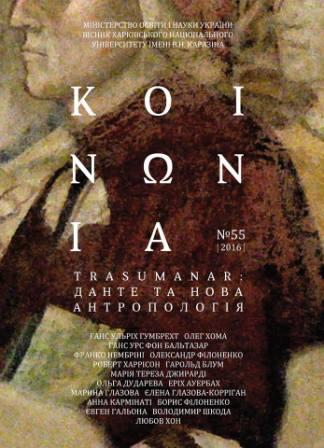Comedy and modern: Dante’s hell
Abstract
In his article, the author offers an original interpretation of the epigraph to the poem “The Love Song of J. Alfred Prufrock” — Thomas Stearns Eliot’s modernist manifesto (1917), that consists of two tercets of “The Divine Comedy”. A juxtaposition of the two poets and their stylistic means of expression allows the author to make a number of non-trivial conclusions primarily on the poetics of the “The Divine Comedy” and Dante’s innovation as the spokesman of a new Christian sensitivity. Comparing a classical hero Ulysses and a historical contemporary of Dante — Guido de Montefeltro — described in the cantos of “The Comedy”, which Eliot’s epigraph dates back to, the author demonstrates that the difference in their psychology, duplicated by the difference in stylistic description, is a transformation of consciousness that Christianity brings to an ancient outlook.




